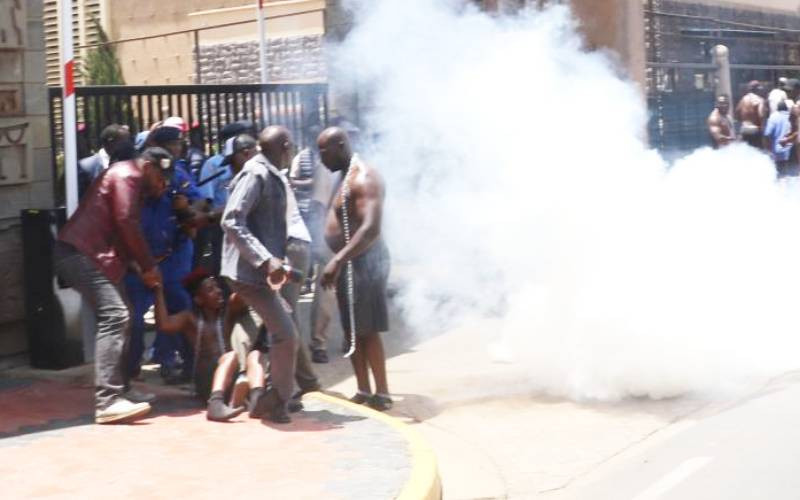Anger and frustration filled the air in Nairobi’s Central Business District (CBD) as protestors poured into the streets, demanding the immediate release of popular comedian Eric Omondi. The demonstrators, brandishing placards and chanting slogans, were adamant: “Aachiliwe ama tulipue Nairobi!” (Release him or we will blow up Nairobi!). The city was brought to a standstill as the throngs of protestors clashed with law enforcement, who were deployed in large numbers to contain the situation.
Eric Omondi, known for his satirical take on societal issues, had recently been arrested under controversial circumstances that his supporters deemed unjust and politically motivated. The arrest sparked outrage among his fanbase and civil rights activists, who viewed it as a blatant attempt to suppress freedom of expression. As tensions escalated, the protestors vowed not to back down until Omondi was freed, insisting that his detention was an affront to democracy and a violation of human rights.
In response to the escalating unrest, Nairobi’s local government officials called for calm and dialogue, urging the protestors to disperse peacefully. However, their pleas fell on deaf ears as the demonstrators, fueled by a sense of injustice and a desire for change, continued to press forward. The situation grew increasingly volatile, with reports of skirmishes between protestors and police, who used tear gas and water cannons in an attempt to disperse the crowds.
Watch Now
The unrest in Nairobi CBD has raised significant concerns about the state of civil liberties in Kenya, drawing international attention and condemnation. Human rights organizations have called for an independent investigation into Omondi’s arrest and the subsequent handling of the protests, highlighting the need for transparency and accountability. As the standoff continues, the eyes of the world are on Nairobi, watching to see how the government will navigate this crisis and whether justice will ultimately prevail for Eric Omondi and his supporters.


